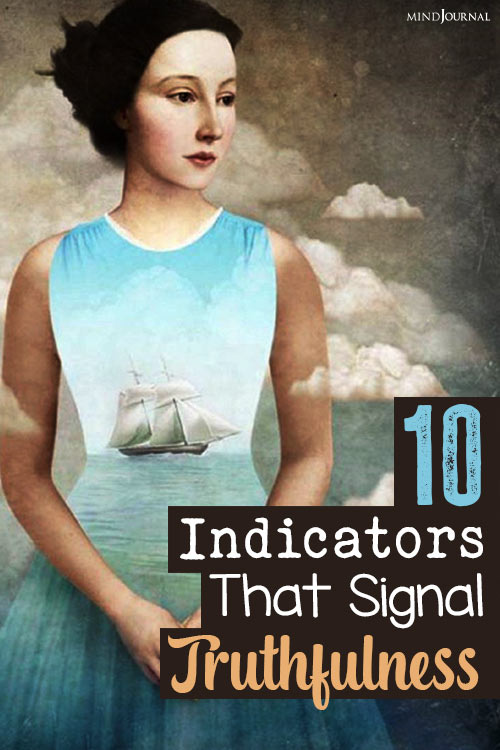People who are truthful can always be easily differentiated from people who are not. You just need to look out for a few distinctive behaviors that signal truthfulness.
Knowing if someone is telling the truth is as important as knowing when someone is lying. Truthful indicators are often overshadowed by the more popular cues that signal deception. Most people focus more on deception indicators. Truthful indicators can provide valuable insight into the veracity of others. The following 10 behaviors signal truthfulness.
10 Indicators That Signal Truthfulness
1. Quoted dialogue
Truthful people use direct quotes from the people they are describing.
Related: 10 Most Popular Psychological Persuasion Theories To Influence People
2. Included emotions
Truthful people often include thoughts and emotions when they describe people or events.
3. Unexpected events or circumstances
Fabricated stories are less likely to include unexpected events or unusual circumstances that arise during the retelling of events.
4. Corrected errors
When truthful people make mistakes, they spontaneously make corrections.
5. Time
Truthful people often omit specific times and locations when describing events.
Related: Socrates’ Triple Filter Test: Truth, Goodness and Usefulness
6. Lessons learned
Truthful people include similar events they experienced in the past and incorporate lessons learned from those experiences into their descriptions of events.
7. Longer descriptions
Truthful stories are longer, more complex, and include specific details.
8. First-person/Simple past tense
Using first-person pronouns coupled with simple past tense verbs suggests the person is committed to the activity they are describing, and they retrieved the information from their memory.
9. Nonsequiturs
Truthful people include details and events that are not pertinent to the description of events.
Related: 10 Powerful Confucius Quotes That Will Change Your Perspective On Life
10. Shoulder shrug/palms up
Truthful people display an even shoulder shrug combined with a palms-up gesture.
Written By Jack Schafer Ph.D. Originally Appeared On Psychology Today









Leave a Reply
You must be logged in to post a comment.